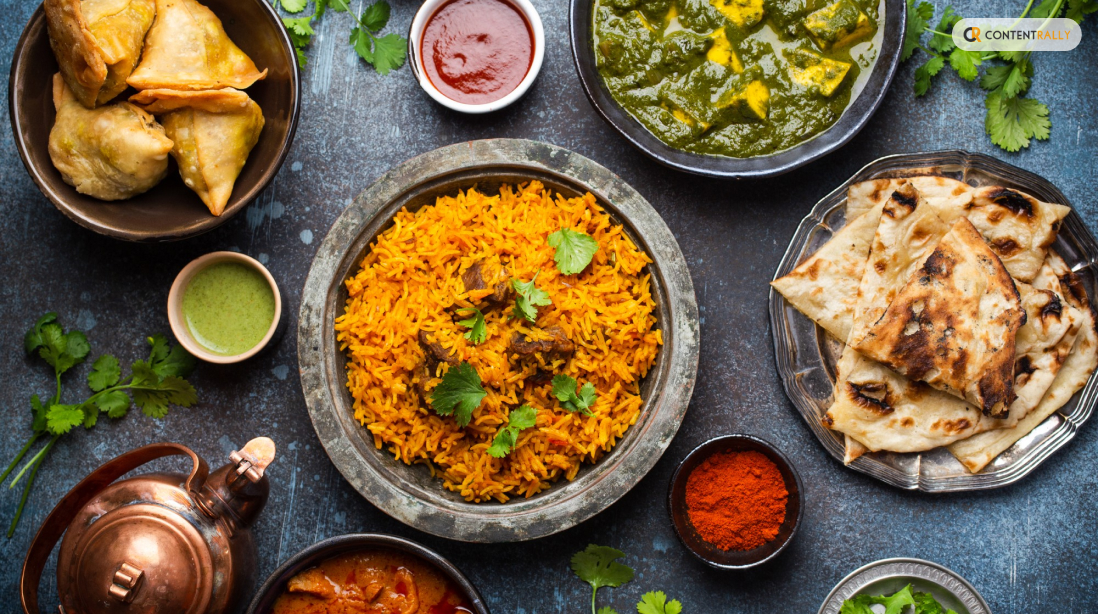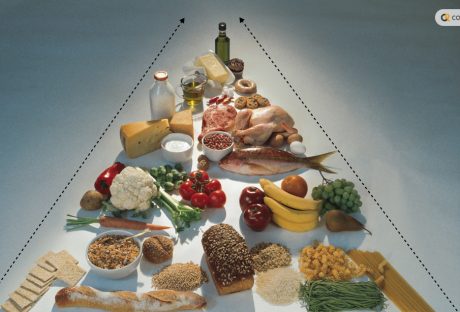Is Indian food healthy? – Of course, they are. There are plenty of Indian dishes that are rich in nutrients, spices, and whole foods.
Although there are innumerable gastronomic options, there are many healthier options. In fact, some food recipes are based on Ayurveda, which is Ancient India’s system of medicine.
In this article, you will learn about the nutritional benefits of Indian food and the balanced dietary profile of Indian food. Also, you will learn about the health benefits of Indian food and healthy Indian cooking techniques.
Moreover, you will also learn about common myths about Indian food. Hence, to learn more, read on to the end of the article.
Is Indian Food Healthy?
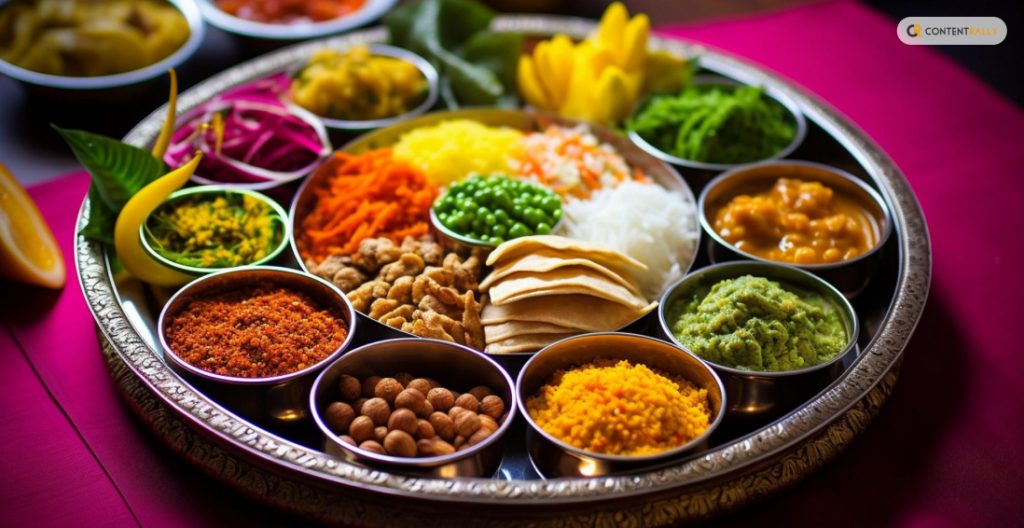
Indian cuisine has a variety of food options consisting of both healthy and unhealthy options. Here, this article aims to consider only healthy Indian food.
Generally, in Indian food, you will find a blend of diverse flavors and healthy food traditions. In fact, apart from satisfying your taste buds, Indian food will improve your health.
One of the most notable aspects of Indian food is that you will find a rich array of ingredients. Traditionally, the Indian diet uses a variety of whole grains, fruits, legumes, and vegetables.
Interestingly, each of them contributes significantly to health benefits. Whole grains like whole wheat, brown rice, and millet play a significant part in Indian meals.
Apart from that, Indian food items are rich in antioxidants. This is because they have many spices that are full of antioxidants. For example, antioxidants in cloves and ginger contain anti-inflammatory properties. Apart from that, cardamom also contains antioxidants.
Basically, antioxidants are molecules that prevent oxidation damage in your body cells. Moreover, it also reduces when damage is done. Hence, Indians mostly follow a diet that is high in antioxidants. As a result, there are fewer risks of diseases like heart disease and cancer.
Balanced Dietary Profile Of Indian Food
Here is a balanced dietary profile of Indian food that you need to know about:
| Food Items | Balanced Dietary Profile |
| Fruits and Vegetables | Generally, an everyday Indian diet includes 400 grams of vegetables and 100 grams of fruits. |
| Cereals and Pulses | Each day, a balanced diet consists of 250 grams of cereals. |
| Diary | A balanced Indian diet consists of 200-250 ml of milk and milk products daily. |
| Protein | Indian food contains 85 grams of protein in the form of eggs, animal protein, and pulses daily. |
| Nuts and Seeds | 35 grams of nuts and seeds daily also fall under a balanced diet. |
To ensure a balanced diet, you must cook your food well and make sure that the food is soft and less salty and spicy. Although Indian food has a lot of spices, the healthy options contain multiple healthy spices in the right amount.
Moreover, when consuming meat, milk, poultry, or any animal protein, make sure they are moderate in number. Furthermore, when you have a balanced diet, you must drink plenty of water and take fewer beverages.
Health Benefits Of Common Indian Ingredients
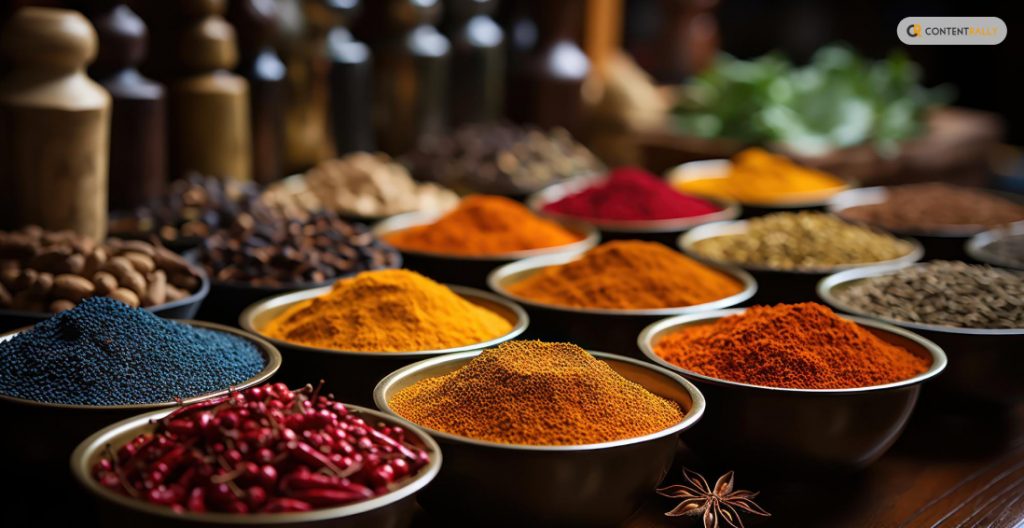
The following are the health benefits of common Indian food ingredients:
1. Spices
Since ancient times, India is known as the land of spices. Even today, India is the biggest exporter of spices in the world. Moreover, Indian food contains a variety of spices.
Here are some spices and their benefits:
- Turmeric: It contains curcumin. This item has antioxidant and anti-inflammatory properties.
- Cumin Seeds: They help in the digestion process and boost the immune system of your body.
- Coriander Seeds: These help you to regulate your blood sugar levels.
- Cardamom: It helps you to lower blood pressure levels.
- Cinnamon: This spice can reduce heart risks.
2. Vegetables, Pulses, And Lentils
Indian foods contain vegetables in food items. These vegetables provide vitamins inside your body. Also, vegetables lower cholesterol and improve vision. Moreover, many pulses contain vitamins A, B, C, and E. Apart from that, they also contain minerals like iron, potassium, and zinc.
On the other hand, lentils and vegetables also promote heart health. This is because they have less saturated fat and high fiber.
3. Whole Grains And High Fiber Foods
Healthy Indian food items contain whole grains like wheat flour and brown rice. These items provide fiber, carbohydrates, and protein.
On the other hand, chickpeas, and other fruits and vegetables help you in the digestion process. Thereby, you can maintain a healthy weight and ensure there are no risks of chronic diseases.
Indian Cooking Techniques And Their Impact On Health

Generally, Indian cooking techniques preserve nutrients in the food items (vegetables, seafood, and meat). On the other hand, there are tempering methods and slow-cooking techniques, with the help of which you can ensure you get all the nutrients in your body.
Here are some of the major Indian healthy cooking techniques that you must know about:
1. Steaming
This is one of the healthiest cooking methods, where you ensure all nutrients in the food stay. Here, you cook the food with minimum water and little to no oil. In this case, you preserve all the vitamins and minerals in vegetables, fish, and meat.
2. Tadka
In this technique, you have to heat spices quickly in a little oil. Then, you have to add them to the main dish. Thereby, you add flavor without increasing the fat content in the food.
3. Dum Cooking
Dum is a slow-cooking method. Basically, you have to seal food in a pot-shaped cooker and add a small amount of liquid. Hence, you can allow flavors to develop inside the food. As a result, there is no need for excessive oil in the food.
4. Grilling
As you might already know, grilling is a simple way to cook vegetables and meat. Meanwhile, with this process, you can retain all the nutrients in the food. Also, you can add a nice-looking character to the food.
5. Pressure Cooking
In this way, you can cook food quickly with a low amount of water. As a result, you preserve most of the nutrients in the food item. Apart from that, this process also helps you to reduce your cooking time.
Why Is Indian Food One of the Healthiest Cuisines in the World?
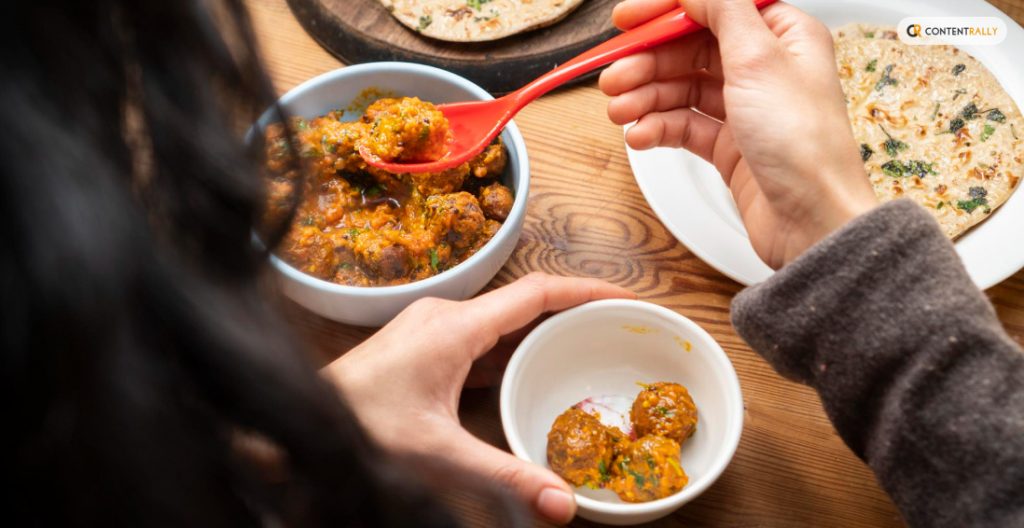
Indian food is one of the healthiest cuisines in the world. This is because of good reasons. One of the major reasons is that it relies heavily on lentils, whole grains, vegetables, and diverse spices with low health benefits and saturated fats.
As a result, these food items are rich in nutrients and are dense with fibers when prepared with traditional techniques.
The following are some of the major reasons why Indian food items are healthy:
- Stable ingredients in Indian food are high in fiber.
- Due to India being a large and diverse country, a wide variety of vegetables are available. As a result, all the essential vitamins and minerals are available through food.
- Moreover, a variety of spices available in India come with potential health benefits.
- Traditional Indian food items use less amount of oil in cooking. Also, they focus mostly on healthy fats like ghee (moderate amount, of course).
- Lentils are common in Indian cuisine and offer a complete profile of amino acids.
- Many Indian foods feature fermented items like yogurt, which improve your gut health.
The Vegetarian Advantage of Indian Cuisine
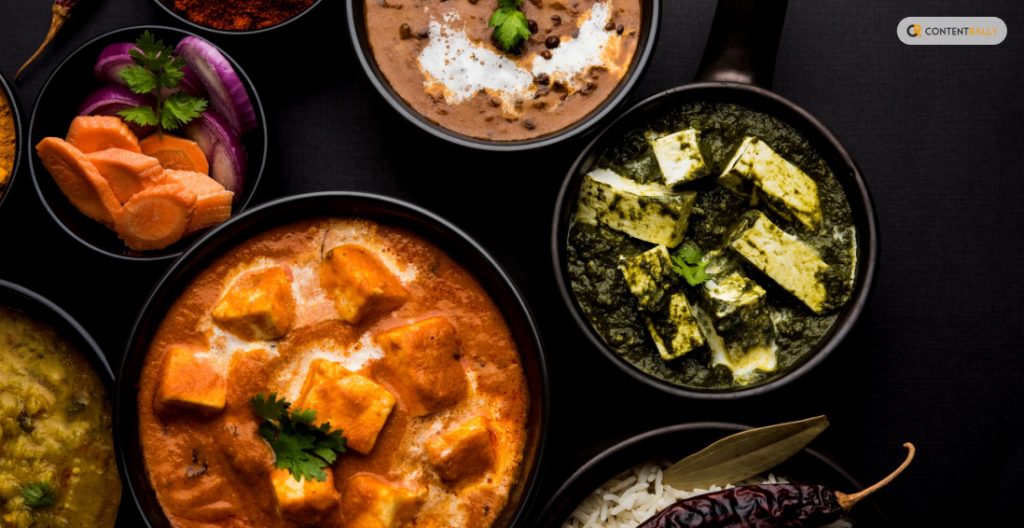
India has an extensive variety of dishes full of flavors and delicacies. However, most consist primarily of lentils, vegetables, legumes, and whole grains.
This provides a nutritious, high-fiber, and well-rounded diet for vegetarians. Apart from that, these food items are full of diverse vitamins and many protein sources.
There is a vast array of vegetarian dishes in Indian cuisine. Moreover, due to the high range of species, it enhances the taste and offers potential benefits.
Common Myths About Indian Food Being Unhealthy
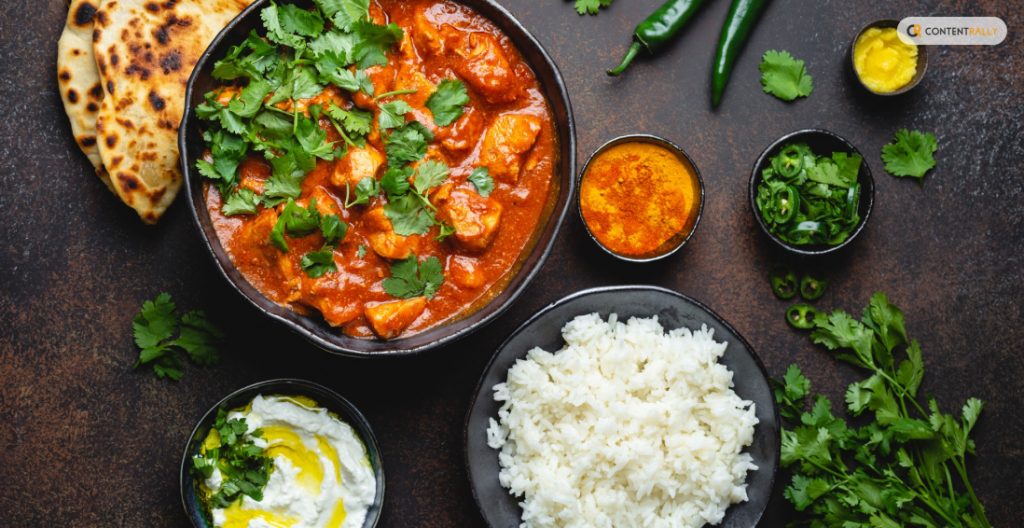
Here are some myths about Indian food that you will find common (however, they are just myths):
- “Indian food is unhealthy and fatty”: This is a common misconception in the West because most Indian restaurants in Western Countries add a lot of oil and ghee to food items. However, this is not the case in Indian households.
- “Indian foods are spicy”: When people think of spices, they align it with the word hot. Actually, India produces a lot of healthy spices. By adding those spices to food, you can make your food healthy.
- “Indian desserts are too sweet”: Again, this is a myth as desserts differ with changing regions. Some regions in India create homemade desserts which are actually healthy.
Try Indian Food Now
Is Indian food healthy? – Now you know the answer to this question. You can see that there are multiple myths about Indian food, and they multiply with misinformation on social media.
India is the land of Yoga and Ayurveda. Hence, multiple healthy food options are available if you cook with the right ingredients.
Do you have more information about healthy Indian foods? Please share your opinions in the comments section below.
Read Also:













